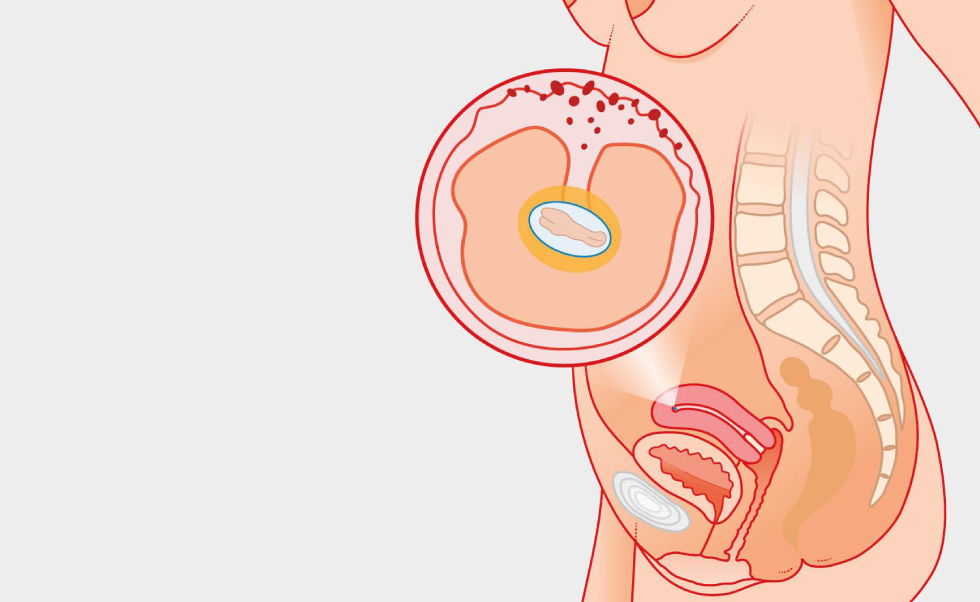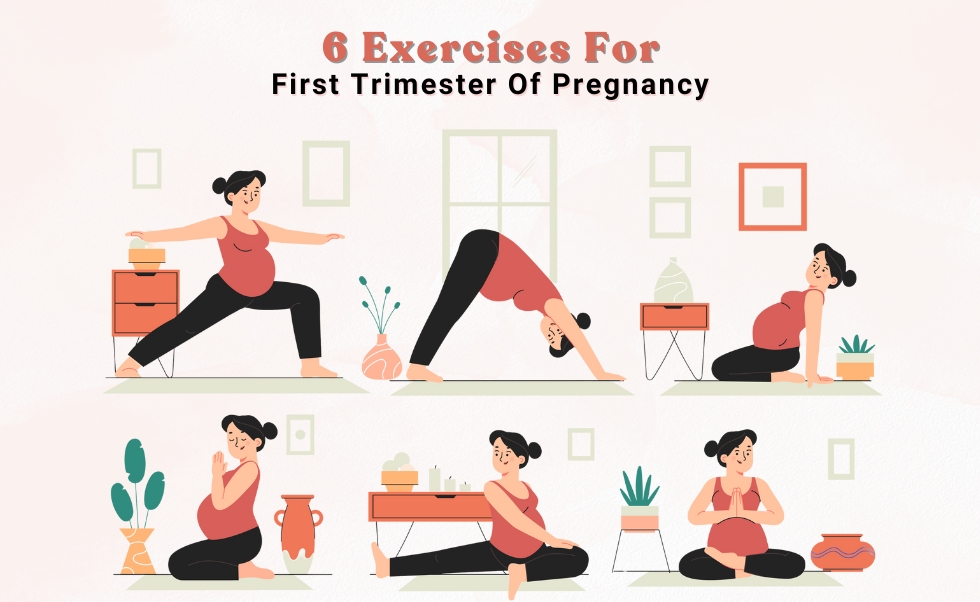The fifth week of pregnancy marks the start of significant changes in both your body and your baby’s development. During this time, your baby is growing rapidly, with the foundation for their heart, brain, and spinal cord beginning to form. As an expecting mother, it’s crucial to prioritize your health and well-being, as it directly impacts the growth of your baby. Week 5 is a key period to adopt healthy habits that will provide a strong foundation for the months ahead.
In this blog, we’ll explore several healthy habits to adopt during the fifth week of pregnancy, which will not only support your baby’s development but also ensure that you feel your best throughout this early stage of pregnancy.
Adopt These Habits During Week 5 of Pregnancy for a Strong Start
1. Prioritize Your Prenatal Vitamins
At week 5, your baby is going through crucial development stages, including the formation of their neural tube, which will later become the brain and spinal cord. This makes folic acid one of the most important nutrients you can take. It’s essential to begin taking prenatal vitamins if you haven’t already. Folic acid helps prevent neural tube defects and supports overall growth during the early stages of pregnancy.
Along with folic acid, prenatal vitamins often contain other essential nutrients like iron, calcium, and DHA, which are vital for your health and your baby’s development. Make sure to take your prenatal vitamins daily and consult with your healthcare provider to ensure you are meeting your specific nutritional needs.
2. Hydrate, Hydrate, Hydrate
Staying hydrated is important at all stages of pregnancy, but especially during the first trimester when your body is adjusting to the changes of pregnancy. Your body will need more water than usual to support your increased blood volume and help flush out waste products.
Aim for at least 8-10 glasses of water a day, and if you’re experiencing morning sickness, try drinking smaller sips of water frequently to prevent dehydration. If plain water doesn’t appeal to you, try adding a slice of lemon or cucumber for some flavor, or opt for herbal teas that are caffeine-free and hydrating.
3. Eat Small, Balanced Meals
In the early stages of pregnancy, many women experience nausea, food aversions, or changes in appetite. Instead of large meals that may overwhelm your digestive system, try eating smaller, more frequent meals throughout the day to keep your energy levels stable and reduce nausea.
Focus on a balanced diet that includes plenty of whole foods such as fruits, vegetables, lean proteins, whole grains, and healthy fats. These nutrients will provide your body with the necessary energy to grow a healthy baby and keep you feeling well. Make sure you’re eating nutrient-rich foods, and don’t hesitate to snack on healthy options like nuts, yogurt, or fruit if you’re feeling hungry between meals.
4. Get Plenty of Rest
Pregnancy can be exhausting, especially during the early weeks when your body is adjusting to hormonal changes. Your growing baby requires a lot of energy, and you may find that you need more rest than usual. Don’t hesitate to take naps when you feel tired, and make sleep a priority at night. The more rested you are, the better you’ll feel during the day.
A solid sleep routine will help your body recover from the physical demands of pregnancy and allow you to wake up feeling refreshed. If you’re having trouble sleeping, try to create a peaceful environment by minimizing noise, using comfortable pillows, and maintaining a consistent bedtime.
5. Exercise (In Moderation)

Staying active during pregnancy is incredibly beneficial for both your physical and mental health. However, it’s essential to listen to your body and adjust the intensity of your exercise routine. Week 5 might be an early stage of pregnancy for some, and while it’s a good idea to stay active, you don’t want to overexert yourself.
Gentle exercises such as walking, swimming, or prenatal yoga can help keep your body strong and improve circulation. Regular movement also reduces the risk of certain pregnancy discomforts, such as back pain or constipation. Speak with your healthcare provider about which exercises are safe for you, especially if you’re new to exercise or have any preexisting conditions.
6. Manage Stress and Practice Relaxation
Pregnancy can bring about a range of emotions, and it’s not uncommon to feel anxious or stressed about the changes occurring in your body or the upcoming arrival of your baby. Managing stress is important not only for your emotional well-being but for the health of your growing baby. Chronic stress can affect hormone levels and may lead to complications.
Make time each day for relaxation and self-care. Consider practicing mindfulness techniques such as deep breathing, meditation, or gentle stretching. Spending time outdoors, journaling, or engaging in creative activities can also help alleviate stress and bring you peace of mind. Surround yourself with positive energy and don’t hesitate to lean on loved ones for support.
7. Avoid Harmful Substances
This is the perfect time to avoid substances that could negatively impact the health of you and your baby. If you haven’t already, it’s important to stop smoking and avoid alcohol, as both can cause serious developmental issues for your baby.
Additionally, be mindful of what you consume in terms of caffeine. While small amounts of caffeine are generally considered safe, it’s best to limit your intake to avoid excessive caffeine consumption. Consult with your healthcare provider to determine what amount is safe for you.
Be cautious about over-the-counter medications or herbal supplements as well. Some medications can be harmful during pregnancy, so it’s important to check with your doctor before taking any new medications.
8. Connect with Your Healthcare Provider
Establishing a relationship with your healthcare provider early on is vital to ensuring a healthy pregnancy. At week 5, you may be scheduling your first prenatal appointment if you haven’t already. During this appointment, your doctor will check on your health, monitor your baby’s development, and provide you with personalized guidance for the coming weeks.
Don’t hesitate to ask questions about any concerns you have, such as your diet, exercise routine, or symptoms you may be experiencing. Your healthcare provider is there to help and guide you through this incredible journey.
9. Track Your Symptoms and Changes
Each pregnancy is different, and you may notice some early pregnancy symptoms such as morning sickness, breast tenderness, frequent urination, or mood swings. Keep track of these symptoms and changes to share with your healthcare provider during your appointments. Tracking your symptoms can help you identify patterns and stay ahead of any issues that might arise.
If you experience any severe symptoms such as bleeding, intense cramping, or severe nausea, contact your healthcare provider immediately.
Conclusion: A Healthy Start for a Strong Pregnancy
Week 5 of pregnancy is a crucial time for both you and your growing baby. By adopting these healthy habits, you’ll give yourself the best chance at a smooth pregnancy and ensure your baby’s development is off to a strong start. Be patient with yourself, as pregnancy is a marathon, not a sprint, and every small step you take towards maintaining your health will pay off in the long run. Remember, you’re building a foundation for a healthy future for both you and your little one.







